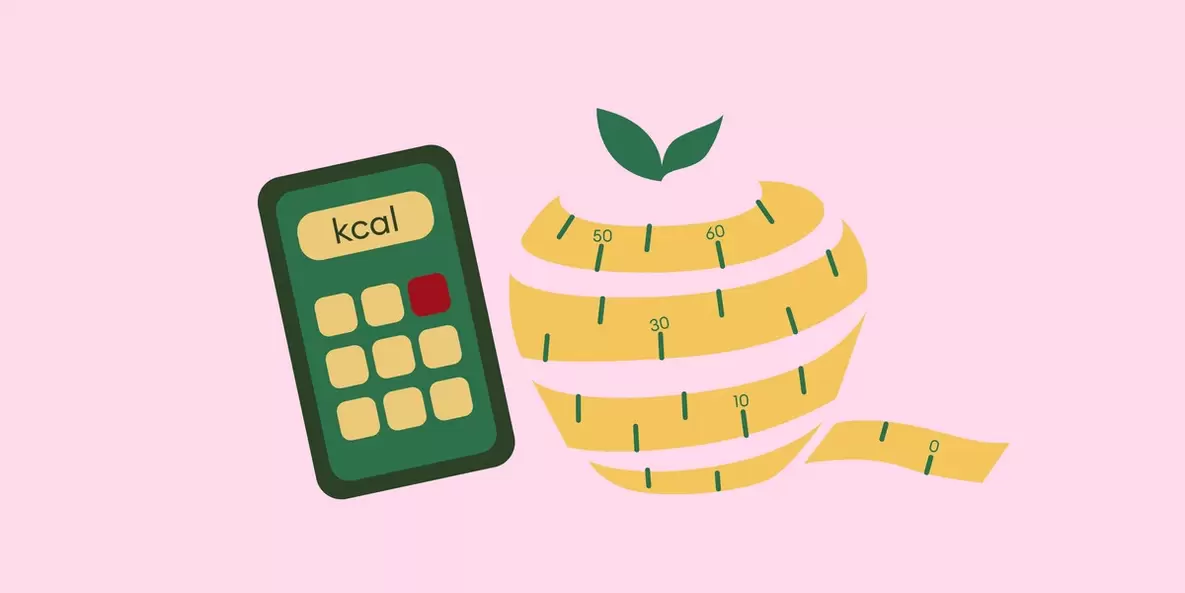
We'll find out whether all diets are harmful, how to eat to lose weight and maintain the results in the long term, and whether you need to count calories for this.
The desire to be slim can push you to new, sometimes even dangerous, exercise methods. But in the end, even if the weight goes away, it will soon return. Why does this happen?
As a rule, radically reducing daily calories only brings temporary effects when the cause of overweight is due to lifestyle and nutrition.
Professional nutritionists explain which principles help you lose weight without harming your health.
Which diet will help you lose weight

So the diet actually helps you lose weight. But before you rejoice, note one important detail: no type of nutritional restriction has long-term effects and can even be harmful.
Every diet has drawbacks: for example, the keto diet can worsen existing liver disease, lead to kidney problems, cause mood swings and irritability due to the lack of glucose found in carbohydratescomplicated.
In addition, diets in the popular sense are always restrictions, restrictions are about malnutrition and weakness. As a result, even if you "sit" for a while and actually lose weight without changing your eating habits, the weight will still come back. And this is a proven model.
The more varied the diet and the more flexible the nutrition plan, the easier it is to follow. This means not breaking down and achieving your goals without harming your body. So, a complete healthy diet is better than a restrictive diet.
But maybe there is a diet that helps you lose weight without harming your health?
A short-term change to a "healthy" diet will not result in sudden weight loss. Furthermore, who says this is the right way to lose weight? You can achieve your desired results smoothly by forming new eating habits.
So the question "What diet will help you lose weight? " is better rephrased as "What is healthy eating? "
What is healthy eating?

A healthy diet should primarily be balanced and varied. The diet must provide you with all the nutrients, vitamins and minerals necessary for the quality functioning of the body. The "healthy plate" principle will help with this.
- Eat fruits and vegetables of different colors. Fresh, boiled, dried - any.
- Include whole-grain complex carbohydrates in your diet: they are rich in vitamins, minerals and fiber.
- Remember that dairy products and plant-based alternatives are important sources of calcium. Choose options that are low in fat and have no added sugar.
- Try to eat fish and legumes at least twice a week.
- Use different types of vegetable oils.
Before starting your weight loss journey, think about the "healthy" foods you enjoy so you have more delicious options for breakfast, lunch or dinner. Remember, the best "diet" is the one you stick to.
Proper nutrition - without restrictions and the stress they cause - can not only help with weight loss but also improve health. In many cases, even a simple switch to a balanced diet results in weight loss.
However, even if you eat a nutritious and varied diet, it's important not to overeat. In addition to internal guides - hunger and fullness - exercise can help with this: finding the right portion size for you.
Should you count calories when losing weight?

The method of calculating calories for daily routine is not the best:
- Focus on numbers related to the body - parameters, weight, kcal, etc. v. - can cause neurosis associated with the development of eating disorders;
- Not all calories are equal in terms of quality - almond and avocado toast have different nutritional values;
- Calorie content depends on the state of the product, for example, the same mass of nuts, whole or ground, will give different calories.
Therefore, calorie counting is more suitable for clinical practice when it comes to medical conditions and/or hospital treatments.
At the same time, the calculation can still be carefully used to independently understand your own nutritional standards as well as the level of proteins, fats and carbohydrates consumed.
You can use an app or website to count calories - this makes life easier in many ways. But often such methods are inaccurate: after all, something eaten and drunk can be forgotten. This means that tens or hundreds of kcal consumed will not be counted in the final figures.
If you control calories in your diet, then do it effectively: take into account snacks, drinks and various additives to main dishes - sauces and butter.
How to calculate your daily calorie intake
To calculate your exact daily calorie intake, use one of the following methods.
Method 1. Formula to calculate energy needs
This EER formula takes into account age, gender, weight, height and physical activity level and is suitable for adult men and women:
- EER for men = 662 – (9. 53 x age in years) + PA x [(15. 91 x weight in kg) + (539. 6 x height in meters)]
- EER for women = 354 – (6. 91 x age in years) + PA x [(9. 36 x weight in kg) + (726 x height in meters)]
PA is the level of physical activity that can be assigned a value from the following parameters:
- sedentary lifestyle (almost no exercise) - PA = 1. 0;
- low activity (light exercise, sports 1–3 days a week) – PA = 1. 11–1. 25;
- moderate activity (moderate exercise, sports 3–5 days a week—PA = 1. 26–1. 48);
- increased activity (heavy exercise, sports 6–7 days a week) - PA = 1. 49–1. 94.
Method 2. Harris-Benedict Formula
This formula will help you estimate your BMR—your basal metabolic rate, or the number of calories your body needs at rest. From BMR, based on your activity level, you can calculate TDEE - total daily energy expenditure.
For men:
- BMR = 66. 5 + (13. 75 x weight in kg) + (5. 003 x height in cm) – (6. 755 x age in years).
For women:
- BMR = 655. 1 + (9, 563 x weight in kg) + (1, 850 x height in cm) – (4, 676 x age in years).
To calculate TDEE, multiply the displayed BMR by your activity factor, based on the following values:
- sedentary lifestyle (barely exercise) - BMR x 1, 2;
- light activity (light exercise, sports 1-3 days/week) - BMR x 1, 375;
- moderate activity (moderate exercise, sports 3-5 days a week) - BMR x 1. 55;
- increased activity (heavy exercise, sports 6-7 days a week) - BMR x 1, 725;
- overactivity (heavy exercise, sports and physical activity) - BMR x 1. 9.
These methods have their disadvantages. For example, the Harris-Benedict equation, although used for many years and serving as a standard guideline, does not take into account lean muscle mass, which can influence basal metabolic rate. .
Furthermore, the equations provide only estimates and individual variations and metabolism can influence actual energy requirements.
So you shouldn't rely solely on calorie counting. Consider your actual experience and comfort food intake, and listen to your feelings of hunger and fullness.
Important things to know when losing weight
7 tips for people who want to lose weight.
- Striving to get fit is great until it becomes an obsession. Analyze why you want to lose weight. Your weight may be healthy, but environmentally unfriendly motivations, on the contrary, can be harmful.
- Fat performs an important function in the body: it protects against cold and hunger, surrounds organs and protects them from injury, and provides the body with energy. Before losing weight, evaluate how much you need it. After all, obesity and obesity are not the same thing.
- Any restrictive diet is an unhealthy practice for your health. If they do produce results, they are short-term but can lead to neurosis and eating disorders. Remember that it is important for stars to lose weight "here and now", and therefore a beautiful photo does not equal health and is probably not the best example.
- Excess sugar in the diet is one of the leading causes of obesity. Adjusting your diet according to the principle of "healthy meals" is the most effective diet.
- Weight is influenced not only by nutrition but also by sleep quality, physical activity level and even psychological and mental state. If adjusting your diet doesn't bring about the desired changes, there may be another reason.
- Some experts recommend the Mediterranean and Scandinavian diets, as well as intermittent fasting for weight loss. However, before trying a new meal plan, review your dietary habits and preferences. And if it's not your thing, don't take it. Forcing yourself to eat can lead to negative results and harm your health.
- And of course don't self-medicate. If excess weight has led to health problems, seek professional help.
































